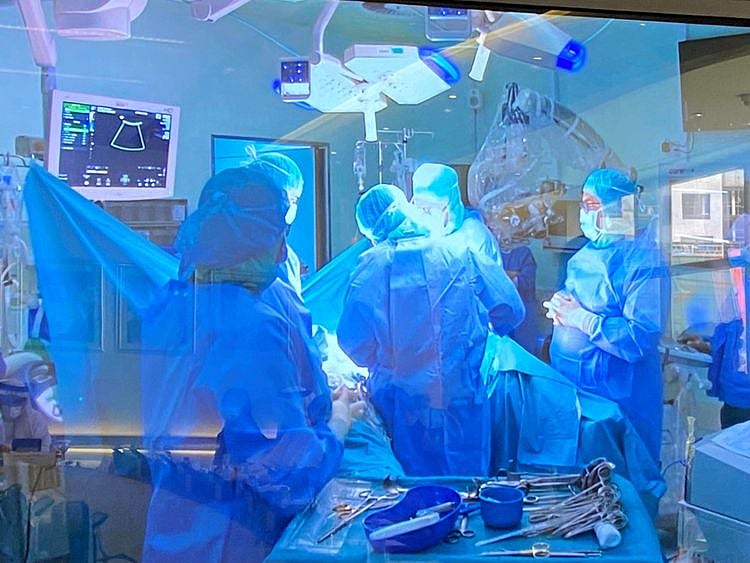UAE makes medical history with first AI-powered robotic knee surgery
The procedure was conducted under the hospital’s expert supervision

In a landmark achievement for medical innovation in the UAE, Zayed Military Hospital in Abu Dhabi has successfully completed the country’s first knee replacement surgery using an AI-powered robotic arm. The procedure was conducted under the hospital’s expert supervision, marking a major step forward in advanced surgical care.
This cutting-edge technology analyses patient data and 3D CT scans to design a highly precise, customised surgical plan. The robotic arm operates under the guidance of the surgeon, reducing the margin of error and enhancing surgical accuracy.
The achievement represents a qualitative leap in healthcare quality, ensuring Ministry of Defense personnel and their families have access to the latest medical technologies. It also highlights the hospital’s commitment to adopting global innovations and maintaining leadership in advanced care standards.
What is robotic knee replacement?
Robotic-assisted joint replacement has become a preferred method for performing knee and hip surgeries. This technology allows surgeons to perform procedures with greater precision and individualisation than traditional methods.
By leveraging advanced robotics and self-learning AI, surgeons can create a live 4D map of the joint to determine optimal implant placement. The robotic system removes only the necessary bone while preserving the patient’s natural bone and ligaments, ensuring better joint function.
This method represents a significant improvement over older techniques, which relied on long stems drilled into the femur and template-based planning for implant placement.
Advantages of robotic joint replacement surgery
Robotic-assisted joint replacement offers several key benefits:
Superior accuracy: Studies show robotic procedures are more precise than conventional knee replacements.
Enhanced soft tissue balance: Robotic systems optimise soft tissue alignment, allowing natural joint movement and improving implant durability.
Specialised expertise: Surgeons at Zayed Military Hospital are highly trained in robotic-assisted surgery, offering unparalleled experience in the region.
Robotic surgery is suitable for patients requiring knee or hip replacement. The choice of procedure is made collaboratively between the patient and surgeon.
Common robotic-assisted procedures include:
Partial knee replacement
Total knee replacement
Hip replacement
Benefits of robotic-assisted knee replacement
Compared with traditional surgery, robotic-assisted knee replacement offers several advantages:
Enhanced surgical planning: 3D images captured before or during surgery help surgeons plan the optimal type and positioning of the implant.
Greater precision: Robotics improves accuracy in planning, tissue removal, and implant placement, which can shorten recovery time, reduce complications, and lower the risk of revision surgery.
Ligament preservation: Robotic systems allow for more customised procedures, enabling ligament-sparing total knee replacement for a wider range of patients.
Network Links
GN StoreDownload our app
© Al Nisr Publishing LLC 2026. All rights reserved.